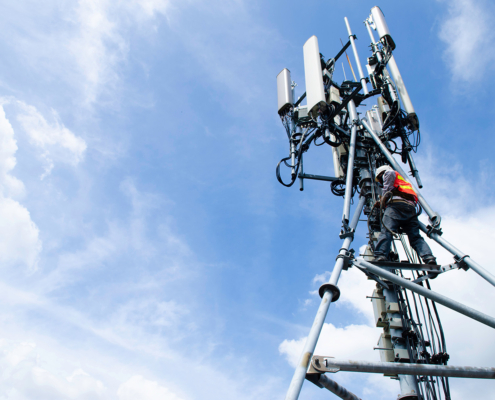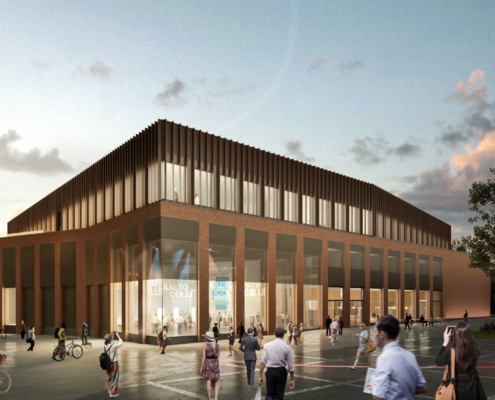Posts

Slicing: a MUST for multisectoral communication
Digital, In the NewsIn emergency situations such as a major car crash, proper coordination between the emergency, medical and transport services is vital. Yet these different operators often use compartmentalized communication services which hinder their performance. The NF-MUST project aims to create a dynamic, shared and flexible network architecture to enable seamless communication. It relies on slicing techniques and virtualized networks to meet the demands of different sectors.

The industry of the future enters the metaverse
Digital, In the NewsThe metaverse is no longer limited to online video games and social interactions, it is now a key technology for industry. With the 5GMetaverse project, five Institut Mines-Télécom schools are looking to adapt the networks of the future to the needs of augmented and virtual reality. The main goal of the project is to develop concrete solutions to optimize industrial processes, remote assistance and human-machine collaboration.

2G to 5G: the ongoing transformation of mobile networks
Digital, In the NewsMobile networks are constantly evolving, with every decade ushering in a new generation. In this article, Meroua Moussaoui, PhD student at Telecom SudParis, explains just how these networks behind our mobile phones work. She also gives us a sneak peek at the features we might experience after 5G.

Olympic and paralympic games 2024, the competition of radio frequencies
Digital, In the NewsLast summer, Paris hosted the Olympic and Paralympic Games, an international event that brought with it an unparalleled need to control radio frequencies and prevent both intentional and unintentional interference. This was the role of France’s National Frequency Agency (ANFR), which was having to increase its workforce accordingly. To meet this exceptional need, Télécom SudParis recruited and trained a number of students over several months to help with controlling frequencies.

The cruel dilemma of health data in the ai era: privacy or equity?
Digital, Health, In the NewsFederated learning is a way to collaboratively train artificial intelligence models. It thus represents a possible solution to AI biases, often caused by training said models on samples that lack diversity. In the healthcare sector, these biases can lead to problems of equity between patients. The EQUIHid project explores how federated learning can help develop more equitable healthcare services.

When hydropower goes digital
Energy & environment, In the NewsThe Di-Hydro project involves digitizing hydropower plants, to operate them as sustainably as possible and better plan maintenance. IMT, in particular Télécom SudParis, is contributing to the development of a federated platform designed to facilitate secure data-exchange and decision-making, both at the level of each individual plant and collectively.

Will buildings soon achieve self-awareness?
Digital, Europe EN, In the NewsThe SUST(AI)N project aims to create connected and aware buildings with a focus on human needs. The technological blocks for this system include ubiquitous and invisible sensors powered by radio frequency signals. A Telecom SudParis team has been working on this new development for over a year.

Connected cities: can ethics play a central role in security?
Digital, Europe EN, In the News, Society, UncategorizedTwo and a half years after its launch, the European project IMPETUS has delivered an eponymous platform dedicated to improving the security of smart cities. The IMPETUS platform incorporates eight tools combining cutting-edge technologies, ethical considerations and operational recommendations for security centers.

Cryptography: what are the random numbers for?
Digital, In the News
Hervé Debar, Télécom SudParis – Institut Mines-Télécom and Olivier Levillain, Télécom SudParis – Institut Mines-Télécom
The original purpose of cryptography is to allow two parties (traditionally referred to as Alice and…

“En route” to more equitable urban mobility, thanks to artificial intelligence
Digital, In the News, Mobility
Individual cars represent a major source of pollution. But how can you transition from using your own car when you live far from the city center, in an area with little access to public transport? Andrea Araldo, researcher at Télécom SudParis…

